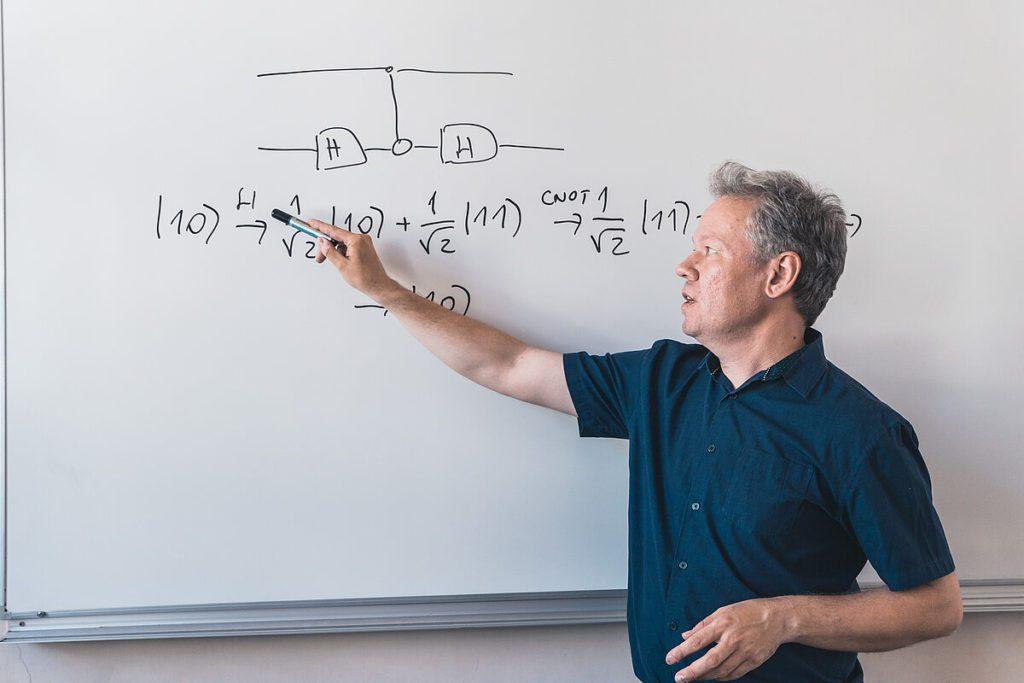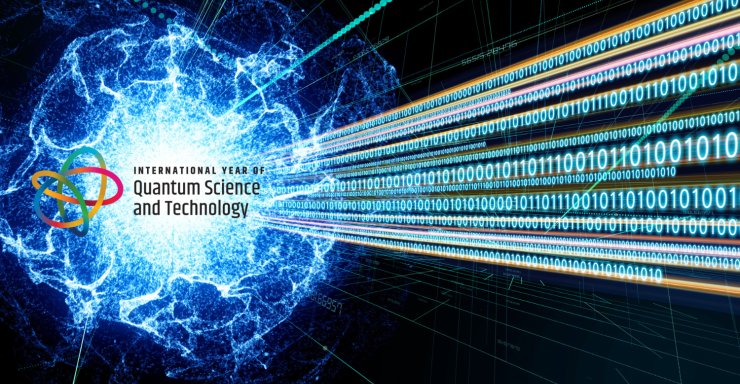Our lives are closely tied to digital technologies – from internet banking and the storage of health data to national security systems. However, the era of quantum computing is rapidly approaching, promising both a revolution in the tech world and serious cybersecurity challenges, warns Professor Andris Ambainis, head of the Quantum Computer Science Center at the University of Latvia.
Quantum computing offers enormous advantages because it can instantly solve complex problems that were previously unsolvable. But this very capability also creates new cybersecurity threats, as powerful quantum computers may be able to break traditional data protection mechanisms.

When Encryption Is No Longer Secure
Until now, the protection of digital data has relied on mathematical complexity – it would take classical computers hundreds or even thousands of years to crack encryption codes.
However, quantum computers, with their massive computational power, could shorten this process to a matter of hours or even minutes. This means that current encryption standards – those that protect our emails, payments, and sensitive government data – could become outdated and ineffective.
Cybersecurity in the quantum era is especially critical for industries that rely on third-party systems. The financial sector is particularly vulnerable, as banks and payment processors often use external service providers who must also be protected against quantum attacks. If a vendor’s security mechanisms are not strong enough, it could create vulnerabilities across the entire financial ecosystem.
Similar concerns apply to healthcare, telecommunications, energy, and public administration. Hospitals and insurance companies store sensitive patient data, and if quantum computers manage to breach external provider systems, it could endanger privacy and patient safety. Internet service providers and critical infrastructure operators using third-party technologies face similar risks, which could affect national-level security.
One of the Biggest Threats: “Steal Now, Decrypt Later”
One of the most concerning strategies cybercriminals already use is “steal now, decrypt later.” Criminals can currently obtain encrypted data that cannot yet be read, but in the future, as quantum technologies evolve, this data may be decrypted. This creates serious risks for both individuals and companies, as data that is safe today could become publicly accessible in a few years.
Time to Act
Although the risks of quantum computing are evident, many organizations are still unprepared. According to a study by Accenture, currently only 10% of banking executives globally express concern about quantum computing threats, while 37% are more focused on immediate cyber threats like malware and ransomware.
To prepare for the threats posed by quantum computing, a transition to quantum-safe encryption is necessary, using methods that are resistant to quantum attacks.
It’s also crucial to perform system audits to identify vulnerable systems and upgrade them. Finally, cross-industry collaboration will be essential to strengthen resilience, share knowledge, and implement unified protection mechanisms against quantum threats.
The future of cybersecurity will depend not on reacting to threats, but on the ability to anticipate and prevent them. The time to act is now – before these threats become a reality that’s difficult to fight.
Latvia's Contribution to Quantum Cybersecurity
As quantum computers near reality, pilot projects exploring their applications in specific industries are becoming increasingly relevant. Globally, such projects have been conducted by many major companies – from the world’s largest banks to Volkswagen and Airbus.
In Latvia, such cooperation began in 2021 between the Quantum Computer Science Center at the University of Latvia and Accenture. The first pilot project, which explored the use of quantum algorithms in medical data analysis, has been completed, and the research team continues to collaborate with Accenture experts to explore quantum algorithm applications in other fields.
The current project investigates quantum computing algorithms that enable faster and more efficient information retrieval in large data sets. Unlike classical search methods that are slow and inefficient in processing large and complex data trees, quantum search uses properties of quantum mechanics to find solutions significantly faster. This could be a decisive factor in both identifying cyber threats and strengthening encryption systems.
In addition to safer encryption, improving cyber threat detection is also crucial. Cybersecurity systems rely on analyzing massive amounts of data to detect suspicious activity, such as malware or attempted attacks. Quantum search could dramatically speed up this process, enabling cyberattacks to be stopped before they cause damage.

